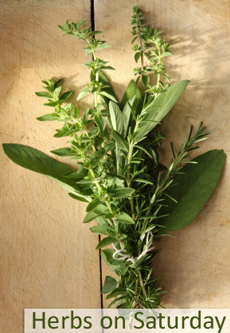I think it's fair to say that Welsh cuisine does not play a prominent role on the world's culinary stage. However, Wales does now take pride in supplying some fine produce, enjoying international recognition for its beef and lamb, fresh fish and seafood and some unique cheeses. There is an increasing number of chefs in Wales eager to make full use of local foods, made and supplied by artisan food producers and traditional dishes are slowly finding themselves back in the limelight.
This then is my St. David's Day contribution to the Welsh culinary revival. Traditional to Anglesey, this delicious dish of potatoes, leeks, eggs and cheese reflects a time when meat was a scarce luxury, like the other more well-known recipes for Glamorgan sausages and Welsh rarebit. I like to think I haven't strayed too far from how my ancestors would have made it; the leeks and potatoes came from ten miles away, the eggs from a local farm and the cheese... well, the cheese is Caerphilly so it admittedly had a slightly longer journey.

As I'm sending this to the Shop Local challenge, created and hosted by Elizabeth from
Elizabeth's Kitchen Diary, I would like to mention the Llainwen eggs I used in this dish.
These beautiful free range eggs have a deep orange yolk that I haven't found anywhere else. The farm, situated in the Vale of Clwyd, has been in the family since 1739 and all their eggs come from a variety of traditional breed hens who happily roam around the fields, truly free-range. Visitors are always welcome on the farm, to see first-hand how the hens are looked after. As you can see from the photos, you get seven, multi-hued eggs in every gorgeous box.
RECIPE - Serves 4 as a starter or 2 as a main course
300g potatoes
3 leeks
oil (olive/sunflower/vegetable)
3 eggs
300ml milk
20g butter
20g plain flour
50g Caerphilly cheese, grated
salt and pepper
Peel the potatoes and cook in boiling salted water for about 15-20 minutes, until soft.
In the meantime, prepare the leeks by slicing them in half length ways and then chopping them finely. Put them in a colander and wash thoroughly under running water. Drain well. Heat a drizzle of oil in a large frying pan, add the leeks and cook gently until softened, being careful not to colour them as leeks can turn very bitter if they start to brown.
Hard boil the eggs, drain and remove the shells when they're cool enough to handle.
Pre-heat the oven to 200°C.
Drain and mash the potatoes, then mix with the softened leeks and season to taste with salt and black pepper.
To make the cheese sauce, melt the butter in a saucepan and add the flour. Cook for a couple of minutes, then off the heat, slowly add the milk, whisking continuously. When all the milk has been added, bring slowly to the boil and keep whisking over a medium heat until thickened and smooth. Remove from the heat and stir in half the cheese.
Slice the eggs in quarters and arrange in an ovenproof dish (or use individual dishes as I have done in the photo). Spoon the potato and leek mixture around the eggs and pour the cheese sauce over the top. Sprinkle over the remaining grated cheese.
This can all be prepared in advance and left in the fridge until you want to cook it.
Cook in the preheated oven for about 15-20 minutes, until bubbling and golden brown.


















